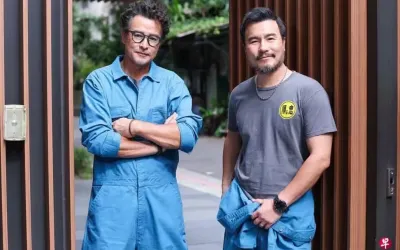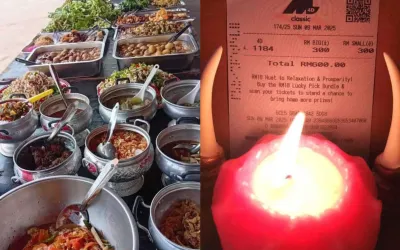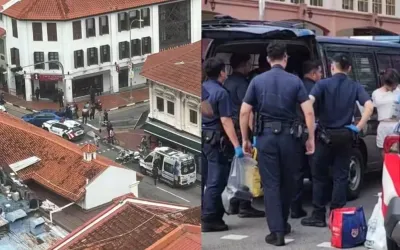2024年5月8日,新加坡永續發展與環境部高級政務部長許寶琨醫生在國會答覆三巴旺集選區議員傅麗珊女士關於協助本地農業企業支持新加坡「30.30」糧食生產目標的相關問題。
以下內容為新加坡眼根據國會英文資料翻譯整理:
協助本地農業企業支持新加坡 「30·30 「的本地糧食生產目標(1)
(第 9 項)傅麗珊女士問永續發展與環境部長:
(a) 本地垂直農場VertiVegies的退出將如何影響新加坡「30·30「的糧食安全目標?該農場本應是新加坡最大的室內蔬菜農場之一,可以讓當地的綠色蔬菜產量提高10%。
(b) 新加坡食品局(SFA)採取了哪些其他措施來加快當地蔬菜產量的增長,2022年當地蔬菜產量約占食品總消費量的4%。
(第10項)陳慧玲小姐問永續發展與環境部長:
(a) 政府是否會考慮制定計劃,支持本地農業公司利用或獲取必要的智慧財產權,以支持新加坡實現「30·30「的本地糧食生產目標?
(b) 對於具備農業經營知識但不具備全面項目開發能力的公司,可以為其擴大農場規模提供哪些支持?
許寶琨醫生(永續發展與環境部高級政務部長)(代表永續發展與環境部部長):議長先生,請允許我一併回答議事程序表上的第 9 項和第 10 項問題。
議長先生:可以。
許寶琨醫生:謝謝議長先生。在我們的「30·30「願景中,我們的目標是建設農業食品生態系統的能力和能量,以實現高產、資源高效和氣候適應性強的食品生產。多年來,新加坡食品局(SFA)逐步建立了由高產農場組成的農業食品生態系統,利用科學技術促進生產,並準備了必要的空間和基礎設施。然而,與許多其他行業一樣,我們的農產品行業一直面臨著從新冠疫情到強大阻力的挑戰,如高通脹壓力和施工延誤,尤其是在新冠肺炎疫情期間。
新加坡食品局正與我們的農場密切合作,通過各種舉措來克服這些挑戰,如促進監管審批,通過農業食品業轉型基金(ACT)共同資助技術的採用,支持能力發展。迄今為止,6000 萬新幣的ACT基金已承諾為 60 個項目資助 2300 多萬新元。ACT 基金可以支持農業系統智慧財產權的許可、獲取或註冊,以及諮詢、分包、設計和開發服務的參與,這有助於提高我們的糧食產量。
農場還與具有互補優勢和能力的夥伴合作,尤其是當他們考慮擴大規模時。他們與合作夥伴合作,可以帶來他們可能不具備的技能和能力。當地農場還可以與食品研究人員合作,利用新加坡食品故事2.0科研計劃,促進水產養殖、可持續都市農業、未來食品和食品安全方面的研發。
最初給予 VertiVegies 的農業用地現已重新招標給另一家農業食品企業,以進一步實現我們的「30·30「願景。
我們農場的成功還取決於對本地產品的充足需求。因此,SFA 一直在與業界合作,通過各種措施提高需求量,包括支持農場和零售商成立供需匯總機構,以及開展宣傳活動,提高公眾對本地農產品的認識。消費者當然也可以儘自己的一份力量,選擇購買貼有紅色 「SG新鮮農產品 「標誌的農產品,或在 「從農場到餐桌表彰計劃 「下的餐飲企業就餐,該計劃表彰在菜單中突出本地農產品的餐飲企業。
議長先生:有請傅麗珊女士。
傅麗珊女士(三巴旺集選區議員):謝謝議長。我感謝高級政務部長的回答。我有一個補充問題。請問到目前為止,新加坡這種大型蔬菜農場的成功率是多少?
另一方面,在我們的住宅區內也有許多社區農場,甚至是城市農場,種植非常類似的蔬菜,而且相當成功。一個更加分散、本地化和社區化的蔬菜種植模式是否更加可行?
許寶琨醫生:議長先生,感謝這位議員的提問。關於成功率的第一個問題,我認為這個問題不容易界定,因為今天當我們看一個農場時,我們會看他們的生產水平,例如他們可生產的噸數。儘管如此,具有規模經濟的大型農場能夠以更高效的速度生產產品,因此,當它們進入市場時,價格競爭力可能會更強。因此,我們將成功定義為農場能夠生產並能夠找到銷售產品的市場。
但這也是一段旅程,一個過程。每個農場都要經過一段時間才能擴大生產。通常情況下,即使規模化採用了新技術,他們也需要一段時間來測試技術,在提高產量之前獲得正確的參數。隨著他們產量越來越多,他們必須開始尋找潛在的買家來承接這些數量。
因此,僅僅建立基礎設施並希望產品能夠有效進入市場,並不是一個簡單的過程。他們確實需要自己和潛在的利益相關者一起,經歷幾次疊代和幾個步驟。
關於第二個問題,即本地化、去中心化的模式,例如社區農場,能否取代更大規模的農場,實現我們的「30·30「目標? 我認為小型農場確實能為「30·30「的願景增值並做出貢獻。但我認為它們的運營規模不同,如果你與買家交談,尤其是大型承購商(如超市)交談,他們想要的是生產的確定性以及品質與數量的一致性。因此,與小型農場相比,大型農場可能更能滿足承購商和零售商的需求,因為小型農場的生產批次較小,來自不同地方農場的產品組合也不同,可能更難滿足大型零售商的期望。
因此,我們與所有合作夥伴合作,所有這些農場,無論是大型農場還是社區內的小型農場,都能共同為我們的「30·30「願景添磚加瓦。

以下是英文質詢內容:
ASSISTANCE FOR LOCAL AGRICULTURAL FIRMS TO SUPPORT SINGAPORE』S 「30 BY 30」 LOCAL FOOD PRODUCTION GOAL(1)
9 Ms Poh Li San asked the Minister for Sustainability and the Environment (a) how will the withdrawal of VertiVegies, a local vertical farm which would have been one of Singapore’s largest indoor vegetable farms boosting local production of greens by 10%, affect Singapore’s 30-by-30 food security goals; and (b) what are the other measures by the Singapore Food Agency to accelerate the growth of local vegetable production which accounts for around 4 per cent of total food consumption in 2022.
10 Miss Cheryl Chan Wei Ling asked the Minister for Sustainability and the Environment (a) whether the Government will consider plans to support the leveraging or acquiring of requisite intellectual property by local agricultural firms that will support Singapore’s 30-by-30 local food production goal; and (b) what support can be provided to companies with agriculture operational knowledge but without full project development capabilities for scale-up farms.
The Senior Minister of State for Sustainability and the Environment (Dr Koh Poh Koon) (for the Minister for Sustainability and the Environment): Mr Speaker, may I have your permission to answer Question Nos 9 and 10 on today’s Order Paper together please?
Mr Speaker: Yes, you do.
Dr Koh Poh Koon: Thank you, Sir. Sir, in our 「30 by 30」 vision, we aim to build the capability and capacity of the agri-food ecosystem towards productive, resource-efficient and climate-resilient food production. Over the years, the Singapore Food Agency (SFA) has progressively built the agri-food ecosystem of productive farms, harnessing science and technology to boost production, and preparing the necessary spaces and infrastructure. However, our agri-food sector, like many other sectors, has been facing challenges from the COVID-19 pandemic to strong headwinds, such as high inflationary pressures and construction delays, especially during the period of the COVID-19 pandemic.
SFA is working closely with our farms to overcome these challenges through initiatives, such as facilitating regulatory clearances and supporting capability development by co-funding the adoption of technology through the Agri-food Cluster Transformation (ACT) Fund. To date, the $60 million ACT Fund has committed more than $23 million of co-funding to 60 projects. The ACT Fund can support licensing, acquisition or registration of intellectual property for farming systems and engagement of consultancy, sub-contracting, and design and development services, which can help to increase our food production.
Farms also work with partners, with complementary strengths and capabilities, especially when they are thinking of scaling up. They work with partners that can bring skillsets and capabilities that they may not have. Local farms can also partner food researchers to tap on the Singapore Food Story 2.0 Research and Development (R&D) Programme, which promotes R&D in aquaculture, sustainable urban agriculture, future foods and food safety.
The agri-land plot that was originally awarded to VertiVegies has since been retendered to another agri-food player to contribute further towards our 「30 by 30」 vision.























